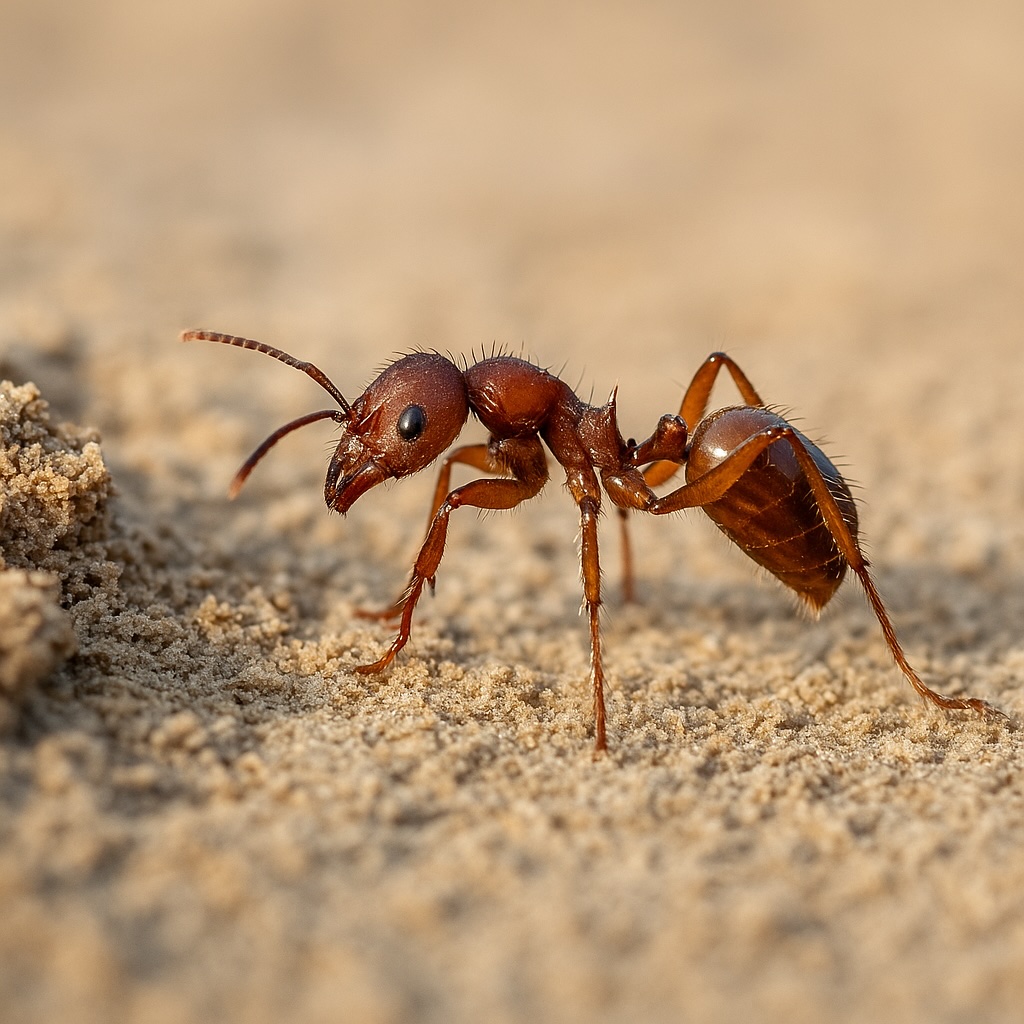If you’ve ever stepped barefoot onto a fire ant mound, you know just how painful these aggressive invaders can be. Atlanta’s warm, humid climate makes it a hotspot for fire ant colonies—especially in yards with dry, sunny patches of grass. In this guide, we’ll walk through proven Atlanta fire ant prevention tactics that actually work in our region. From smart bait timing to long-term yard strategies, here’s how to take back your outdoor spaces with proven Atlanta fire ant prevention tactics.

Why Fire Ants Love Atlanta Yards
Atlanta’s warm, subtropical climate creates the ideal conditions for fire ant colonies. Mounds tend to form in open, sunny spaces—like your lawn, garden beds, or driveway edges. Fire ants prefer well-drained soil and tend to avoid shaded or overly wet areas. This makes summer prime time for infestation in Atlanta’s backyards.
Understanding Fire Ant Behavior
Fire ants build massive underground colonies with multiple queens. Disturbing a mound only causes them to relocate nearby—so digging them out or pouring boiling water is rarely effective. Successful prevention starts with understanding how they forage, when they’re active, and how bait is carried back to the colony.
Best Time to Apply Fire Ant Bait in Atlanta
Apply bait in early spring and again in late summer—when ants are actively foraging. For maximum effectiveness, apply bait in the morning when soil is dry and before rain. Avoid treating during extreme heat or right after mowing. Ants prefer slightly cooler soil to forage.
Choosing the Right Fire Ant Bait
Look for slow-acting bait labeled specifically for fire ants—often containing ingredients like hydramethylnon or spinosad. These products allow ants to carry poison deep into the colony before effects kick in. Granular broadcast baits work best for large yards; mound treatments can be used for spot control but won’t prevent re-colonization.
How to Make Your Yard Less Inviting
Prevention starts with lawn health. Fire ants hate disruption, so mowing regularly and disturbing soil makes a difference. Remove piles of brush, logs, or debris where ants can hide. Fix irrigation leaks to avoid damp zones where they thrive. Healthy, dense turfgrass like Zoysia or Bermuda also discourages mounds. Aerating once per year and topdressing with compost improves drainage and root density—making your lawn less ideal for colonies.
Maintaining healthy turfgrass like Zoysia or Bermuda helps crowd out fire ant activity. Thick, well-rooted lawns leave fewer bare patches for colonies to take hold.
Safe Fire Ant Control Around Kids and Pets
When selecting bait or treatments, look for “pet-safe” or “OMRI-listed” organic options. Baits are typically safer than sprays, as they use lower concentrations and are spread thinly. Always follow label instructions and keep pets off recently treated areas for at least 24 hours. Consider using fencing or edging to block off treated zones temporarily.
⚠️ What NOT to Do
- ❌ Don’t pour gasoline or bleach on mounds—these methods are dangerous, illegal in many places, and don’t solve the problem.
- ❌ Don’t stomp the mound—ants will scatter and regroup nearby.
- ❌ Don’t rely only on spot treatments—without bait, you’re not reaching the queen or colony center.
Realistic Expectations for Atlanta Homeowners
Complete elimination isn’t always realistic. In Georgia, the goal is control—not eradication. With consistent seasonal baiting and proper lawn care, you can reduce fire ant activity to the point that your yard is safe and usable year-round.
Tips for Integrating Fire Ant Control into Lawn Care
One of the most effective ways to reduce fire ant populations is by combining your lawn maintenance with pest prevention. For example, aerate your lawn in early spring before bait application to encourage deeper soil activity. Overseed bare patches to eliminate prime mound real estate. When fertilizing, avoid overwatering—excess moisture can create ideal nesting zones. Align your lawn care tasks with ant control efforts to maximize results without extra effort.
What to Do If You See a New Mound
Spotting a new mound doesn’t mean your prevention failed—it just means it’s time to act. Use a small scoop of granular bait placed a few feet away from the mound rather than directly on it. This encourages natural foraging behavior and avoids disturbing the colony. Reapply bait in the surrounding area every few weeks until activity subsides. Mark the spot so you can monitor for reappearance.
Should You Hire a Pest Control Company?
For larger yards or high-risk properties, professional help may be worth the investment. Licensed pest control services can apply fast-acting and long-lasting products that homeowners can’t easily access. Many offer spring and summer packages specific to fire ant management. If you’ve tried baiting and still see large mounds returning regularly, a one-time professional treatment can reset your yard and give your own maintenance plan a clean start.
📍 Did You Know?
Fire ants were first reported in Georgia in the 1950s and have steadily spread throughout the Southeast. Metro Atlanta is now considered one of the most fire-ant-dense urban zones in the U.S., according to the University of Georgia Cooperative Extension. This makes ongoing prevention a must—not just a one-time chore.
🐾 Fire Ant Risks for Pets and Kids
Fire ant bites can be extremely painful—and dangerous if multiple stings occur. Small children and pets are especially vulnerable, as they may disturb mounds unknowingly. Symptoms include swelling, blistering, and in rare cases, allergic reactions. Always inspect your lawn before letting kids or animals play, especially after rain or fresh mowing. Baiting helps prevent accidental encounters and makes your yard safer overall.
🧠 What UGA Extension Recommends
According to the University of Georgia Cooperative Extension, “broadcasting fire ant bait over your entire yard twice a year remains the most effective long-term strategy.” Timing, consistency, and bait type are more important than aggressive chemical use.
FAQ: Atlanta Fire Ant Prevention
What months should I apply fire ant bait in Atlanta?
Early April and late August are ideal—ants are foraging and weather conditions are favorable.
Can I use homemade remedies to kill fire ants?
Most DIY treatments like vinegar or boiling water only kill surface ants and don’t affect the colony. Use bait for lasting control.
What’s the best bait to use?
Granular baits with slow-acting insecticides like hydramethylnon or spinosad are most effective for broadcast applications.
How do I keep fire ants away from my garden?
Use garden-safe bait and create barriers with mulch, diatomaceous earth, or edging to discourage movement into beds.
Related Articles for Atlanta Homeowners
Final Thoughts
Fire ants are part of life in the South—but they don’t have to take over your lawn. By using baits strategically, staying on top of yard health, and following seasonal treatment schedules, you can keep fire ants under control and enjoy your outdoor spaces year-round.
